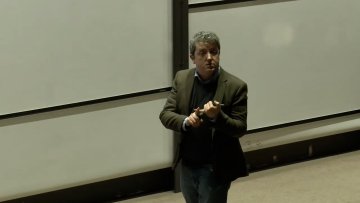Like so many people around the world, our Oxford Mathematics students are in the middle of the exam season.
Our fourth year students started at the end of May and finish tomorrow, third year students finish a week later while first and second students are preparing for their exams which start soon and finish on 23 June.
Schauder estimates at nearly linear growth
Abstract
Schauder estimates are a classical tool in linear and nonlinear elliptic and parabolic PDEs. They describe how regularity of coefficients reflects in regularity of solutions. They basically have a perturbative nature. This means that they can be obtained by perturbing the estimates available for problems without coefficients. This paradigm works as long as one deals with uniformly elliptic equations. The nonuniformly elliptic case is a different story and Schauder's theory turns out to be not perturbative any longer, as shown by counterexamples. In my talk, I will present a method allowing to bypass the perburbative schemes and leading to Schauder estimates in the nonuniformly elliptic regime. For this I will concentrate on the case of nonuniformly elliptic functionals with nearly linear growth, also covering a borderline case of so-called double phase energies. From recent, joint work with Cristiana De Filippis (Parma).


